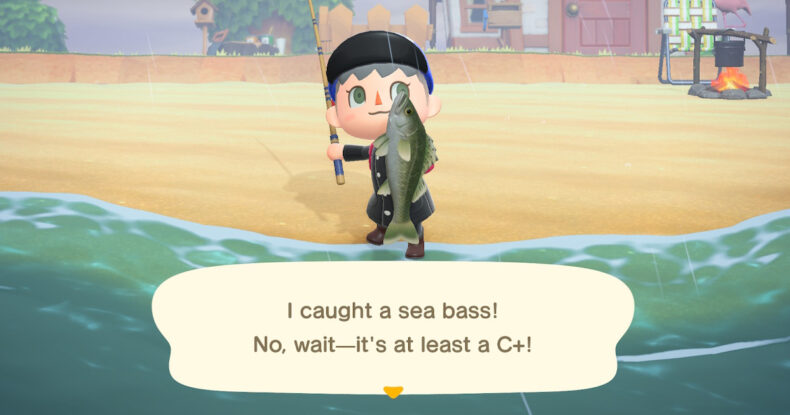Tags
acnh, animal crossing, climate change, global warming, new horizons, nintendo, switchDecember is almost over and you know what that means: it’s your last chance to get certain bugs and fish in Animal Crossing: New Horizons before the cruel march of climate change wipes them out of existence. If you’re looking to complete your museum, here are the creatures you need to catch by December 31 so your island can have a historical record of the soon to be extinct creatures.
Centipede (Northern Hemisphere)
Centipedes might look scary, but they’re useful bugs that can eat unwanted house pests like cockroaches. Unfortunately, it may be too late for you to appreciate that since more than 40% of insect species are currently in decline due to climate change. Arthropods are especially in trouble, which ecologists worry could carry apocalyptic consequences. You’ll definitely want to snatch up one of these creepy crawlers before you have something very real to fear!
Firefly (Southern Hemisphere)
Fireflies are a beautiful sight in New Horizons, majestically lighting up the warm night sky. While the bioluminescent bugs have been around since the days of dinosaurs, their numbers are in steady decline in recent years, likely due to light pollution and humans destroying their habitats. These are easy to spot twinkling in the night, so make sure to bring one to Blathers so you can hear his funny description one last time before they die off for good.
Cherry Salmon (Southern Hemisphere)
If you think catching a Cherry Salmon is hard now, just wait until next year! Salmon become more susceptible to threats like disease and predators as freshwater streams warm up, so they’ll be as rare as Coelacanths soon. You can fish all the garbage out of your island’s streams as you want, but that won’t fix wider systemic issues that lead to unpredictable weather patterns that can wash away salmon eggs and habitats. Hey Tom Nook, better reinvest some of those bells into clean energy, stat!
Mussel (Northern Hemisphere)
Who’s ready for an island cookout? In June 2019, a California heat wave literally cooked a gigantic swath of the aquatic creatures in their shells prompting the species’ biggest die-off in at least 15 years. Since random heat waves are becoming more and more frequent as humanity fails to do anything about a climate disaster of its own design, you’ll want to snag a living one before this foundational species ceases to exist altogether prompting unknowable consequences for your island’s marine ecosystem.


